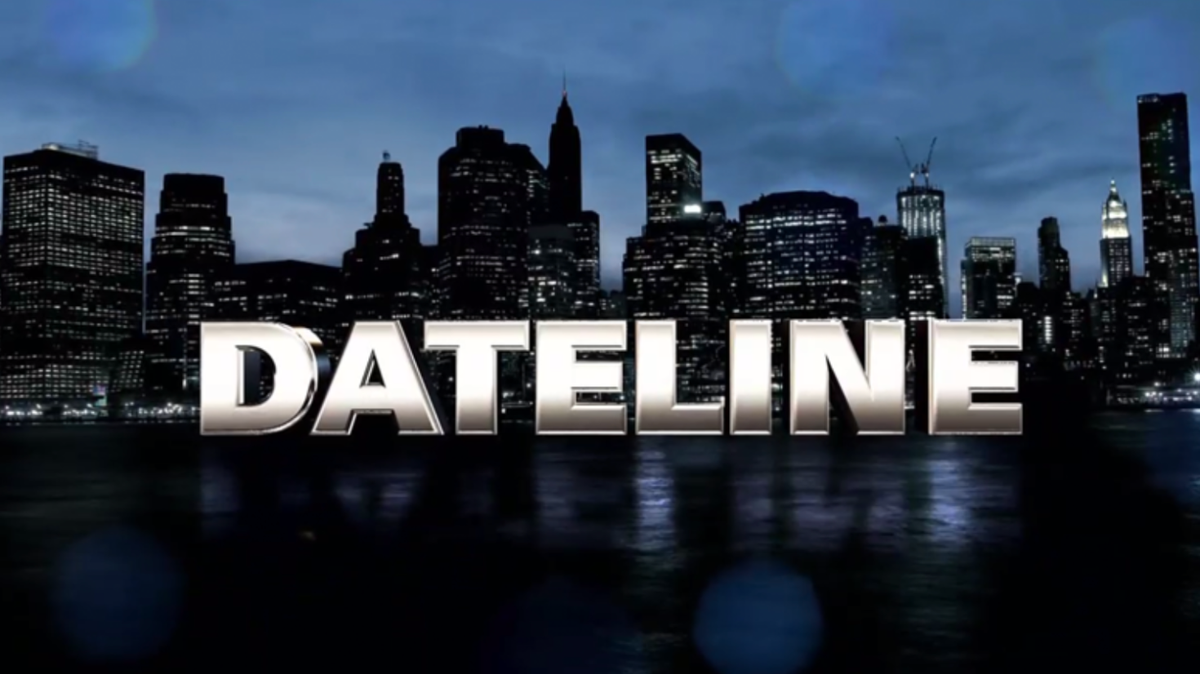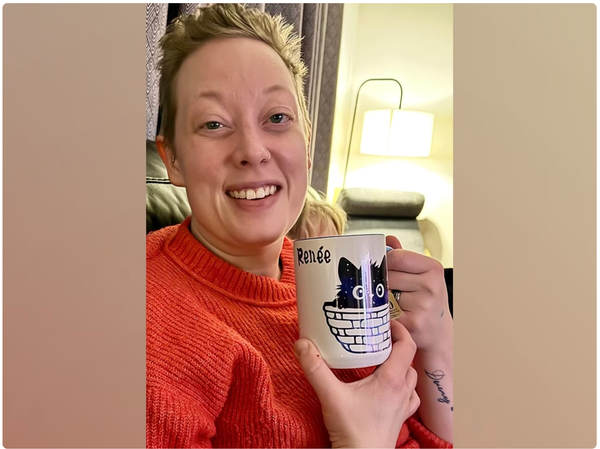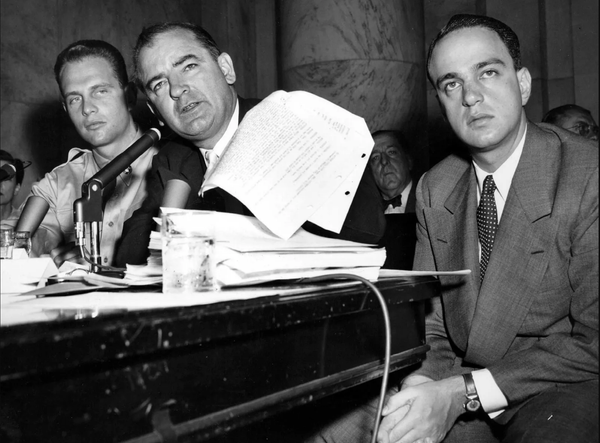"Based on a True Story" May Break My "Dateline" Habit
The send-up series interrogates true crime fans' motives

I knew podcasting was big. I had no clue how big: Globally, 5 million podcasts with 70 million episodes are listened to by almost half a billion people. According to new research by Pew, the form is dominated by true crime, which accounts for 24% of the US’s top podcasts. News, the next most popular category, trails at just 15%.
The popularity of true crime podcasts has led to a spate of send-ups, including “Only Murders in the Building,” which streams its third season later this summer and “Based on a True Story,” which recently concluded its first. In both series, ordinary people start podcasts to try to capitalize on their proximity to murders.
From its first episode, “Based on a True Story” pushed me to reevaluate my motives as a habitual consumer of true crime programming.
Writing about the Alex Murdaugh trial, I learned true crime shows skew female, with some women using them to gather information about predators and their methods as self-protection. Professor Kelli Boling at the University of Nebraska-Lincoln, who has conducted research on producers and consumers of true crime podcasts, has found listeners have a number of other motivations, including a desire to see justice done in the real world. And there have been instances of true crime shows contributing to that end by leading to the reopening of cold cases, solution of crimes, and conviction of murderers. They can bring and keep attention on individual crimes, a main reason why law enforcement and victims’ loved ones participate in them.
True crime can educate. Rather than dramatize threats from strangers, as many crime dramas and news stories do, true crime often focuses on cases of domestic and intimate partner violence, reflecting the reality that most homicide victims, and the vast majority of women killed, are killed by someone they know.
It can provide information about the law, investigation, forensic science, and the justice system, and about families, relationships, society, or history. I gained much from reading Jon Krakauer’s “Under the Banner of Heaven: A Story of Violent Faith,” Kate Winkler Dawson’s “American Sherlock: Murder, Forensics, and the Birth of American CSI,” and David Grann’s “Killers of the Flower Moon: The Osage Murders and the Birth of the FBI.”
It can honor the lives of victims and of those involved in bringing perpetrators to justice. My friend Ellen Stark and her sister Elizabeth Dugan edited and published their late father’s memoir, “Horrific Homicides,” which shares his insights and processes as the judge presiding over cases including the DeFeo murders, exploited in 1977’s “The Amityville Horror” by profiteers who seem likely to have hosted a podcast if those had existed then. “Over the past 40-plus years, the story of the alleged haunting of the scene of the crime, told over and over in countless books, movies, and documentaries, has served to keep the murder story in the public eye,” Stark says. “But it has also changed the narrative of why DeFeo may have killed his entire family. My father wanted readers to know the facts of the crime and trial.”
For true crime fans, facts and truth aren’t always the point. Of the various motives driving interest in these stories, Professor Boling has proven entertainment is “key.”
I’ve self-justified my long-time “Dateline” habit as stemming from my interest in human behavior and psychology and the art of suspenseful storytelling — the same things that made me want to become an English teacher. But it’s undeniable: I’m choosing to be entertained — again and again — by the stories of real people who have been victims of terrible crimes. Put that way, it doesn’t feel so good. It is the challenge of a puzzle and the excitement of a solution that brings me back to shows like “Dateline.” They are primarily entertainment, a choice I’m making in lieu of “Top Chef,” “The Real Housewives,” a stand-up special, or a classic film.
In “Based on a True Story,” a California couple with money problems is befriended by a man they soon discover to be a notorious serial killer, the West Side Ripper. The wife (Ava, played by Kaley Cuoco) concocts the idea for a podcast, and as expected, the plan to blackmail the murderer into providing interviews gets complicated. The very premise raises the issue of ethics in what has become a lucrative industry, suggesting that some true crime enterprises can be seen as being in collaboration with criminals, particularly those who seek attention for their atrocities.
The couple’s visit to a true crime convention in one episode caricatures a business based on the notoriety of violent predators and the suffering they cause. The leading pair of genre podcasters are self-congratulatory fame-seekers. A man in a booth sells tasteless souvenirs. A woman claiming to have survived an attack by the West Side Ripper appears to be a fraud generating acclaim and income with an invented memoir. Ava has a momentary crisis of conscience in a convention center restroom when she encounters the mother of one of the Ripper’s victims and is reminded of the very real lives and deaths they hope to cash in on.
“Based on a True Story” doesn’t just raise the question of whether true crime as a genre has evolved into an industry exploiting crime victims. It asks the audience to consider their complicity. “These jackals are loving it,” the Ripper says in reference to their podcast’s listeners. He insists they want “fresh content,” in other words, they want more people to die at his hands. Of course they don’t, the anxious couple insists, but the accusation hangs there.
The opening scene forecasts none of the laughs to come. It is a horrifying violent scene that made me question if I wanted to keep watching. A young woman is alone in her apartment. Unaware of an intruder, she finishes a chat with a friend on the phone and begins a workout. Suddenly, the intruder attacks her from behind with a knife, viciously and repeatedly stabbing her. We adopt the viewpoint of her psychopathic killer, able to view her bloody death and, soon, her lifeless body.
The contrast with “Dateline,” which rarely shows brutality and gore, is dramatic. Josh Mankiewicz, one of the show’s reporters, has said, "‘We could find bloodier crimes. We could find more famous crimes. We're not as interested in that. Dateline is about the choices people make when relationships don't work out.’" The show adopts the perspective of the victim’s family and friends and/or of law enforcement, and despite the Bill Hader/SNL parody, its interviewers show compassion, not obscene interest (though they could lose the creepy vocals in the opening theme.) Images of deaths and crime scenes tend to be from briefly-shown police photographs. The accused and convicted are sometimes interviewed, but we mostly look down on them via grainy interrogation room videos. As a result, I rarely have to shut my eyes for “Dateline.” I did several times watching “Based on a True Story.”
While this is all a credit to “Dateline,” I can’t help but wonder if the show’s familiar formula makes it easier for me to remain detached from the true horror of the crimes they cover. Should the devastation wrought by violence in this world be softened to make it more watchable? I may not be reveling in the violence or the tragedy it caused, but I am enjoying the mystery that would not exist without it.
Some of the worst things that appear on-screen in “Based on a True Story” turn out to be dreams and fantasies, not real in the world of the series. It had me wondering why they were included. To allow the viewer some comfort in the reminder that the violence presented is all fake—or allow for more violence per episode? The comedic moments, often absurd, should also provide relief. The script and acting is often funny, but unlike the urban cozy “Only Murders in the Building,” where the humor dominates, the graphic violence in “Based on a True Story” made me queasy.
Where does this leave me as a true crime reader, listener, and viewer? I won’t be watching the second season of “Based on a True Story.” But its questions remain. I took “Dateline” off of the DVR. If I want suspenseful entertainment, there is fiction. True crime should be more than entertainment, provoking thought and action. It shouldn’t just be a habit.



